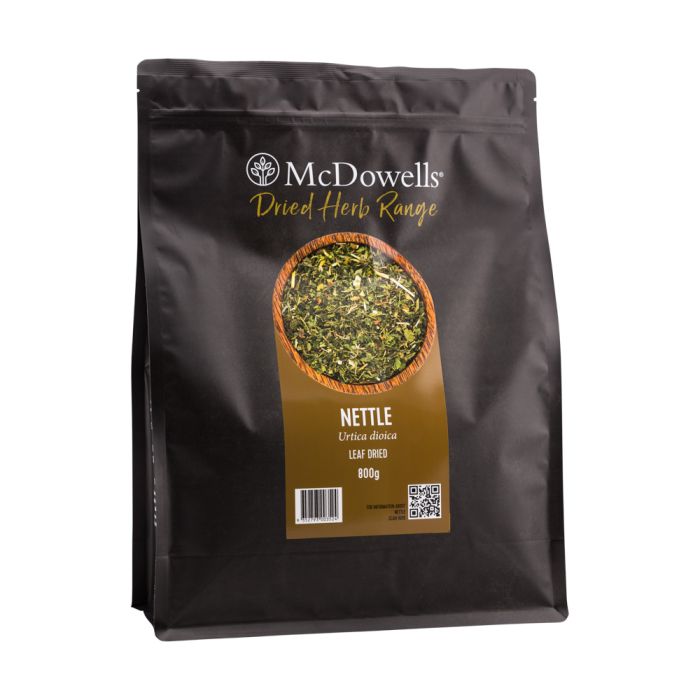Nettle leaf has been used in traditional medicine for many centuries. It is commonly known for its sting as you brush past with bare skin but this plant commonly thought as a weed, has studies backing up many of the traditional beliefs about nettle’s medicinal properties...

Nettle
Product Information
Description
Botanical name: Urtica dioica
The use of stinging nettle in medicine is ancient. It was used to relieve joint discomfort and as a diuretic, or to help the body get rid of extra water, in mediaeval Europe.
There are accounts of nettles' stinging qualities helping Julius Caesar's soldiers stay awake and vigilant during the night between 58 and 45 BCE.
First Nations inhabitants in North America utilised stinging nettle to cure intestinal worms, diarrhoea, eczema, and urinary tract infections. The sensitive tips are a great source of vitamin C, carotene, and chlorophyll because they were cooked for food. Germany, Scotland, and Norway employed the long fibres for sailcloth, cord, and fishing line during World War I. Bronze Age burial sites have been found to include delicate textiles.
Neem is employed as a blood tonic, diuretic, circulatory stimulant, antibacterial, astringent, and antidepressant in contemporary herbal medicine.
Nettle relieves PMS symptoms, boosts energy, helps joint aches from gout, arthritis, and rheumatism, and includes antihistamines to treat hay fever, allergies, and asthma.
